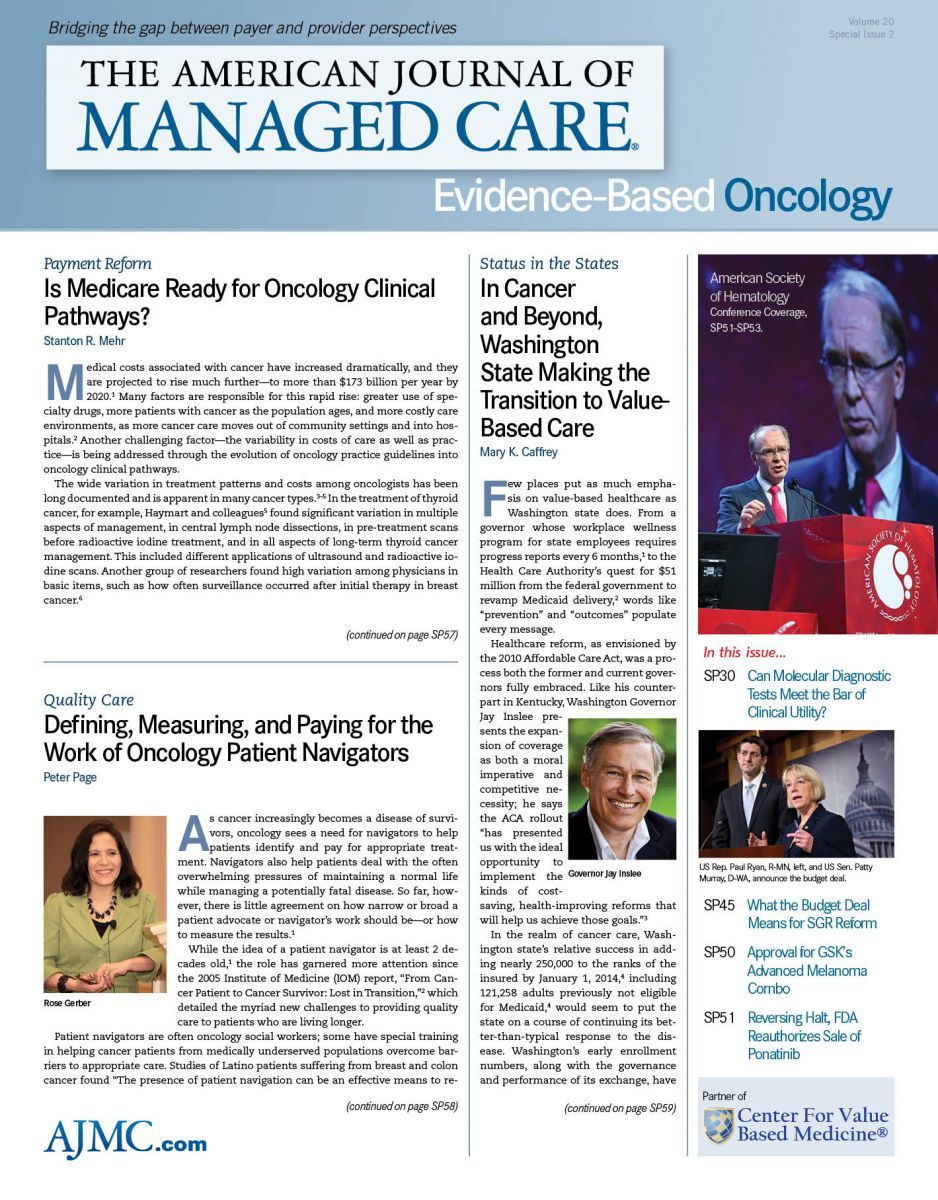- Center on Health Equity & Access
- Clinical
- Health Care Cost
- Health Care Delivery
- Insurance
- Policy
- Technology
- Value-Based Care
GSK Drug Combination Approved for Advanced Melanoma
The US Food and Drug Administration (FDA) has granted an accelerated approval to the combination of the MEK inhibitor trametinib (Mekinist) and the BRAF inhibitor dabrafenib (Tafinlar), both developed by GlaxoSmithKline (GSK), as a treatment for patients with unresectable or metastatic melanoma who harbor a BRAF V600E or V600K mutation. The approval was based on results from an open-label phase I/II trial, which showed that trametinib combined with dabrafenib nearly doubled the duration of response and significantly improved overall response rates (ORR) compared with dabrafenib alone.
Both drugs were approved as single agents in May 2013 along with a companion diagnostic. This is the first approval for a targeted therapy combination in advanced melanoma.
“Mekinist and Tafinlar are the first drugs approved for the combination treatment of melanoma,” said Richard Pazdur, MD, director of the Office of Hematology and Oncology Products at the FDA’s Center for Drug Evaluation and Research. “Their development for combination use is based on the strong understanding of the biological pathways of the disease. This approval illustrates the value of continuing to study drugs in combination for clinical development.”
The study was based on the rationale that a more complete inhibition of the mitogen-activated protein kinase pathway could help overcome the resistance developed by 50% of the patients within 6 to 7 months following the administration of a single-agent BRAF or MEK inhibitor. The phase I/II study was conducted in 4 segments, with phase II generating the majority of information regarding clinical activity. In this segment of the trial, 162 patients with advanced melanoma and BRAF V600E/K mutations were randomized in a 1:1:1 ratio, with 54 patients in each arm who had not previously received BRAF or MEK inhibitors. Patient characteristics were balanced between arms, with an ECOG (Eastern Cooperative Oncology Group) performance status of 0 or 1.
The patients received 150 mg of dabrafenib twice a day, plus 1 mg of trametinib once daily (combination 150/1), or 150 mg of dabrafenib twice a day plus 2 mg trametinib once daily (combination 150/2). Patients in the control group received single-agent dabrafenib at 150 mg twice a day. The primary endpoints included progression-free survival (PFS), ORR, and duration of response. Overall survival (OS) was assessed as a secondary end point; however, crossover was allowed following progression.
The trial results confirmed the superiority of the 150/2 combination, which was chosen as the FDA-approved dose. Compared with the control (54%) the ORR of the 150/2 group was observed at 76% (P = 0 .03), and the median duration of response was 5.6 months compared with 10.5 months, respectively. The median PFS with the 150/2 combination was 9.4 months compared with 5.8
months for the control (hazard ratio [HR] = 0.39; 95% confidence interval [CI], 0.25-0.62; P < .001). However, the HR for PFS by independent review was less pronounced at 0.55 (95% CI, 0.33-
0.93; P = 0.02).
After 1 year, 41% of patients in the 150/2 group were alive and progressfree compared with only 9% in the control group (P < .001), and approximately 80% of patients crossed over from the control group to the 150/2 group following disease progression.
The BRAF and MEK inhibitor combination significantly reduced the incidence of secondary cutaneous squamous cell carcinoma, which occurred in 19% of patients receiving dabrafenib monotherapy compared with 2% for combination 150/1 (P = .004) and 7% for combination 150/2 (P = .09). The most frequent all-grade side effects associated with the combination were pyrexia
(71%) and chills (58%), with severe pyrexia observed in 19% of patients in the 150/1 group, 25% in the 150/2 group, and in 2% in the control group.
Paolo Paoletti, MD, president of oncology at GSK, said in a press release, “This approval marks another key moment in what continues to be a rapid evolution of the treatment landscape for
metastatic melanoma patients. Combining agents that target different mechanisms regulating the growth of cancer cells is one of the promising areas in cancer research. We are proud that the first approved combination of targeted therapies in metastatic melanoma is Mekinist and Tafinlar, and our hope is that it will become part of the new standard of care for appropriate patients with BRAF V600E or V600K mutation-positive metastatic melanoma.”
EBO
To support the accelerated approval, the combination of dabrafenib and trametinib is being explored in a number of phase III trials for patients with metastatic melanoma. In the phase III placebo-controlled COMBI-AD study, dabrafenib in combination with trametinib is being explored as an adjuvant treatment for patients with high-risk melanoma with a BRAF V600 mutation following surgical resection.

Building Trust: Public Priorities for Health Care AI Labeling
January 27th 2026A Michigan-based deliberative study found strong public support for patient-informed artificial intelligence (AI) labeling in health care, emphasizing transparency, privacy, equity, and safety to build trust.
Read More
Ambient AI Tool Adoption in US Hospitals and Associated Factors
January 27th 2026Nearly two-thirds of hospitals using Epic have adopted ambient artificial intelligence (AI), with higher uptake among larger, not-for-profit hospitals and those with higher workload and stronger financial performance.
Read More
Motivating and Enabling Factors Supporting Targeted Improvements to Hospital-SNF Transitions
January 26th 2026Skilled nursing facilities (SNFs) with a high volume of referred patients with Alzheimer disease and related dementias may work harder to manage care transitions with less availability of resources that enable high-quality handoffs.
Read More
Specialty and Operator Status Influence Electronic Health Record Use Variation
January 22nd 2026Operators demonstrated specialty-specific differences in electronic health record efficiency, timeliness, and after-hours use, highlighting how workflow and training shape documentation behaviors across medical disciplines.
Read More
